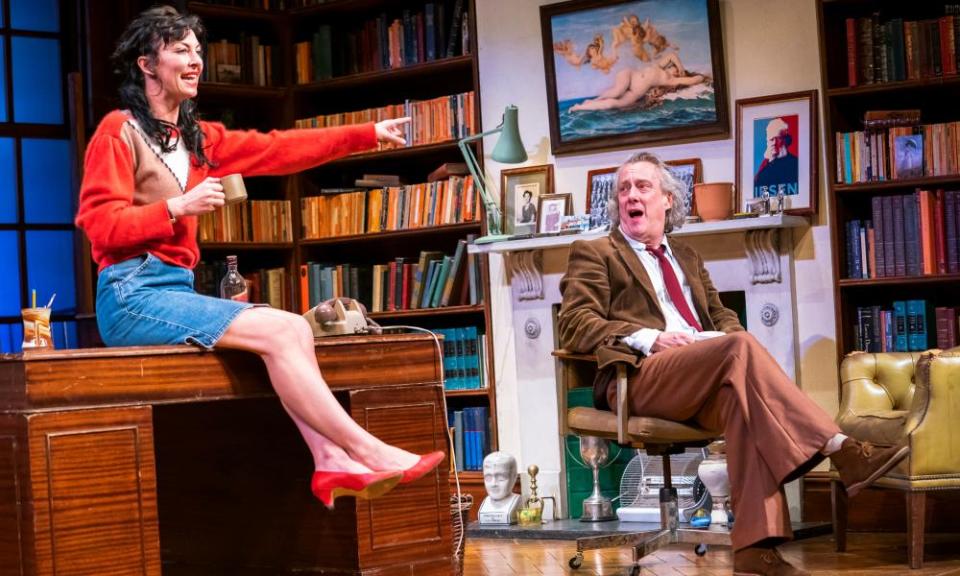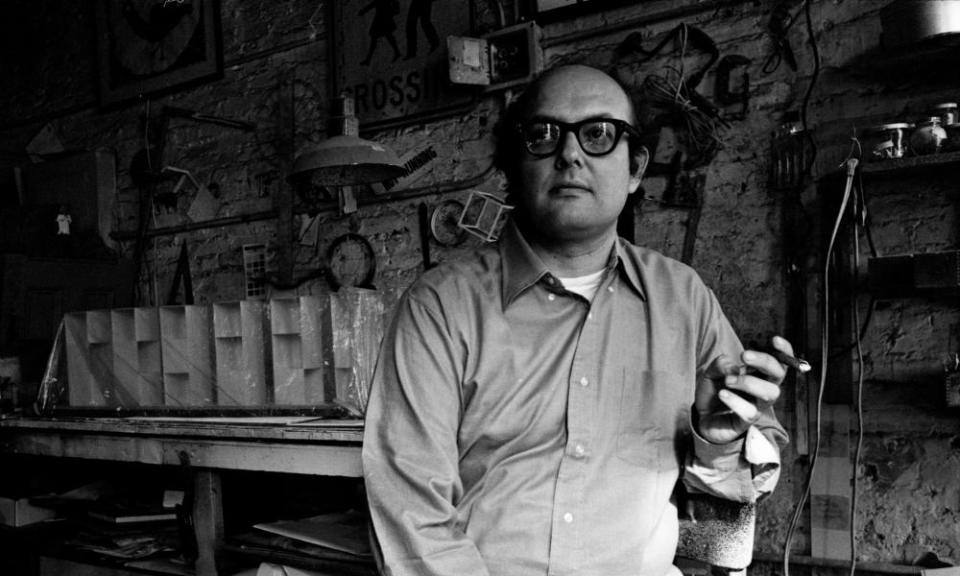Cultural prescription: plays, films, books and more to help you start university

Theatre
I first read Educating Rita at school although, ironically, I wasn’t taught it brilliantly. It’s the perfect play for students heading off to university – a place that should encourage freedom of thought but often promotes conformity. Every student should be more Rita.
Willy Russell’s hugely popular play sees Liverpudlian hairdresser Rita sign up for an Open University English literature course. There she meets middle-aged, middle-class (middle everything, really) professor Frank. Gradually, the two help each other look at life a little differently. But above all, Rita reminds us just how instinctive and exhilarating education can be. That’s a lesson worth holding on to. Miriam Gillinson
* * *
Film

You may be just about to go up to “uni”, as absolutely nobody called it in the 1980s when this film, Starter for 10, is set – in those days it was “college” or “university” in full. Or you may be watching one of your kids do it. Either way, you probably need a little filmic comfort food on the subject, with a bit of comic discomfort thrown in. David Nicholls adapted his own novel for this adaptation directed by Tom Vaughan in 2006. It is a very entertaining romp starring James McAvoy as Brian, a bloke entering fresher hell at Bristol University and dreaming of competing on University Challenge. He is hoping to impress a fellow student Rebecca, played by Rebecca Hall, with whom he has fallen deeply in love. The team captain is a thoroughly stuck-up weirdo played by none other than Benedict Cumberbatch, and Mark Gatiss contributes an eerie impersonation of the man who presented the show in those days: Bamber Gascoigne. So get your fingers on the buzzers. Peter Bradshaw
This article comes from Saturday, the new print magazine from the Guardian which combines the best features, culture, lifestyle and travel writing in one beautiful package. Available now in the UK and ROI.
* * *
Books
“This is the only story I will ever be able to tell,” intones Richard Papen, looking back on the lurid events of his university years – and it’s a good one. Donna Tartt’s 1992 mystery The Secret History, a winning combination of immersive realism and fairytale enchantment, is precision-tooled for the fresher bookshelf. Take a scholarship boy at an exclusive American college who is drawn into a glamorous clique; scatter the intellectual stardust of ancient Greek; stir in passionate friendship, hero worship, first love … and, of course, death.
I devoured it in one go, sitting on a six-hour coach journey to university; 30 years later, this deliciously doomy thriller remains a stone-cold classic. Justine Jordan
* * *
Music

When I started university in 2011, I cared about two things; how many gig tickets my student loan would cover, and how I was going to find a new mate to go with. I still remember the nerve-racked relief of hearing Bombay Bicycle’s Club’s song Shuffle coming out of my nextdoor neighbour’s room on move-in day, the beginning of three years of bonding over sticky strawpedos and stolen posters clawed from the local indie night. If you’re stuck for ideas on your first communal playlist, Bombay Bicycle Club’s jaunty piano riff can still unite even the most diverse of flatmate tastes. Jenessa Williams
* * *
Art

In 1965, the German-born young sculptor Eva Hesse wrote to the conceptual artist Sol LeWitt, complaining of creative block. LeWitt replied with a funny and deadly serious handwritten letter that has since become famous among artists. I wish I’d read as an anxious young student. I’d prescribe it to anyone in any discipline facing creative self-doubt or wondering who they are.
“Just stop thinking, worrying, looking over your shoulder wondering, doubting, fearing, hurting, hoping for some easy way out,” LeWitt writes, the words tumbling over themselves for pages, telling Hesse to stop “bitching, moaning, groaning, honing, boning, horse-shitting, hair-splitting and nit-picking … don’t worry about cool, make your own uncool. Stop worrying about big, deep things. You are not responsible for the world – you are only responsible for your work – so DO IT.” And Hesse did. Adrian Searle

